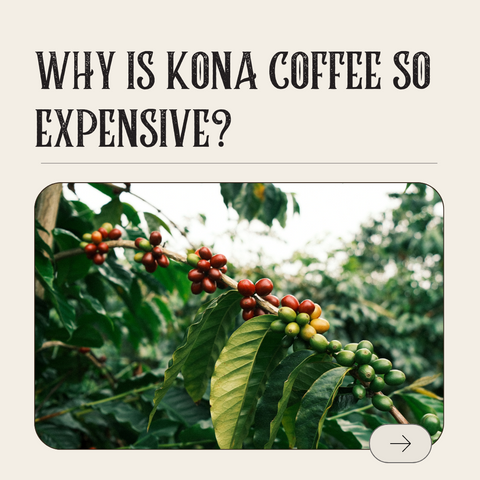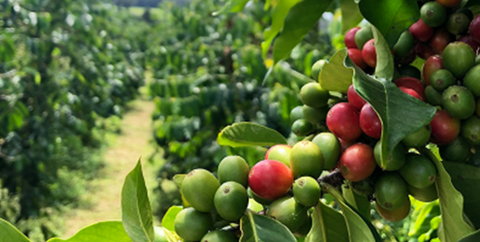Why Kona Coffee is So Expensive?
Kona coffee, known for its smooth and rich flavor profile, stands out among coffees worldwide. Its unique characteristics and distinct taste have earned it a place of prestige, but this excellence comes with a higher price tag. Here's why Kona coffee is so expensive.
Geographic Exclusivity
Kona coffee is grown exclusively in the Kona region of Hawaii, a narrow, 30-mile strip on the slopes of Mauna Loa. This region's volcanic soil, combined with optimal weather conditions—sunny mornings, cloudy or rainy afternoons, and mild nights—create the perfect environment for coffee cultivation. This exclusivity and the limited growing area contribute significantly to its higher cost.
Labor-Intensive Farming
Unlike many coffee-producing regions where mechanized harvesting is common, Kona coffee is predominantly hand-picked. This labor-intensive process ensures that only the ripest cherries are selected, enhancing the overall quality of the beans. However, this meticulous approach requires more time and labor, which increases production costs.
High Production Costs
Operating costs in Hawaii are generally higher than in many other coffee-growing regions. These include land prices, labor wages, and agricultural inputs. Additionally, compliance with stringent U.S. agricultural regulations and the cost of living in Hawaii further drive up production expenses.
Limited Supply
The unique combination of factors needed to grow Kona coffee means that production quantities are inherently limited. The supply cannot easily be increased without compromising quality, and this scarcity drives up the price.
Quality and Craftsmanship
Kona coffee farmers take immense pride in their product, often employing traditional methods and sustainable practices to maintain high standards. The beans undergo meticulous processing, from hand-picking to careful drying and roasting. This commitment to quality craftsmanship ensures a superior product, justifying its premium price.
Certification and Authenticity
To protect the integrity of Kona coffee, strict certification processes are in place. Genuine Kona coffee must be grown in the Kona district and meet specific quality standards. This certification process ensures that consumers receive an authentic product, but it also adds to the overall cost.
The Cost of Kona Coffee
Given these factors, it's no surprise that Kona coffee is more expensive than other varieties. On average, a pound of 100% Kona coffee is $68.95, depending on the grade and producer. This price translates to approximately $1.52 per brewed cup, a modest amount for a taste of one of the world's finest coffees.
When you savor a cup of Kona Mountain Coffee, you're not just enjoying a beverage; you're experiencing the culmination of ideal growing conditions, meticulous farming practices, and a deep commitment to quality. The higher cost is a testament to the dedication and craftsmanship that go into every cup, making Kona coffee a truly special and indulgent treat.



Comments (0)
There are no comments for this article. Be the first one to leave a message!